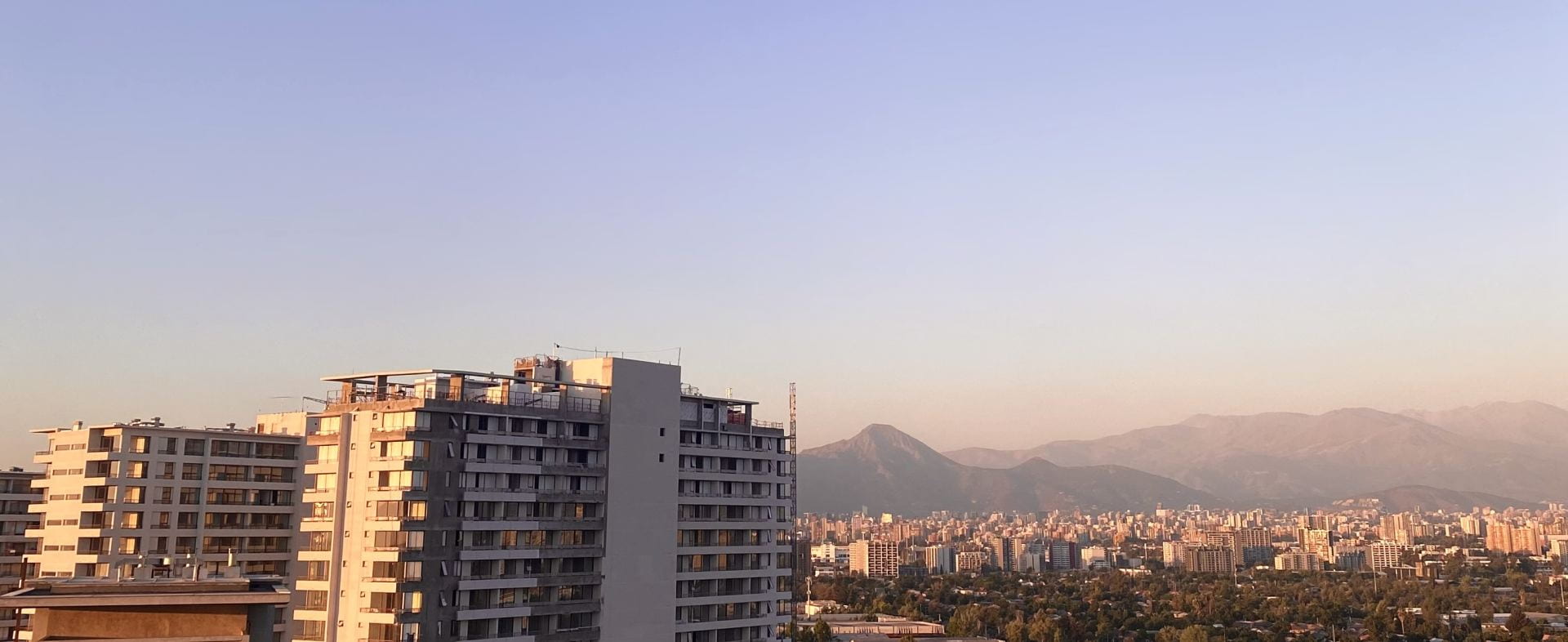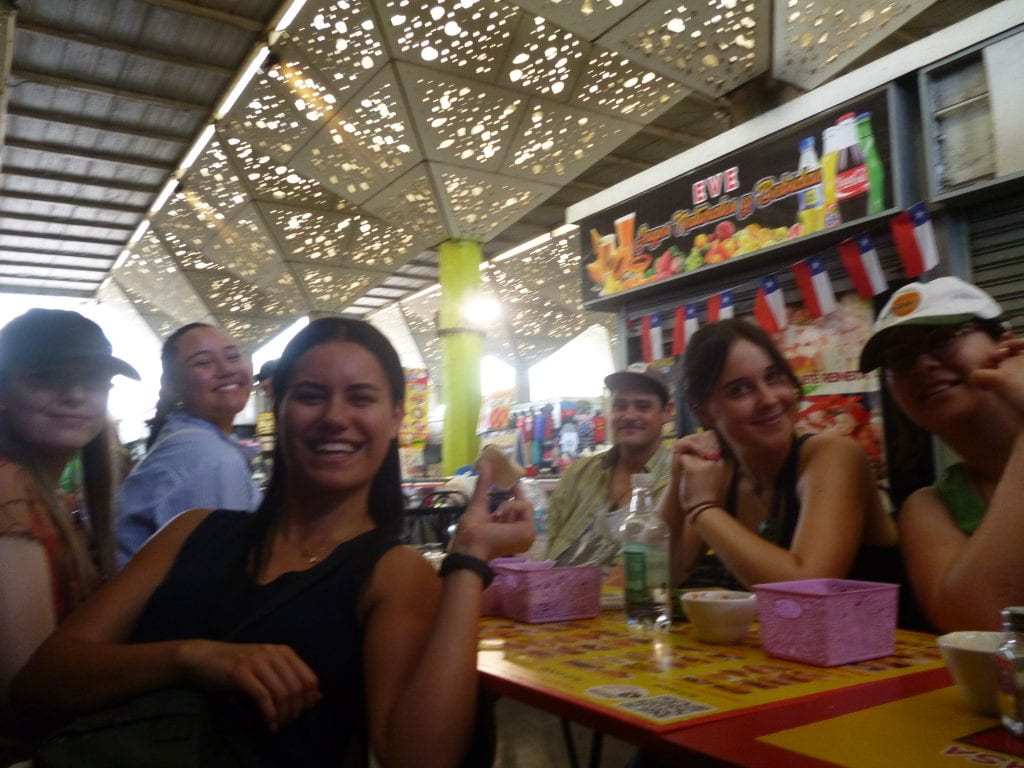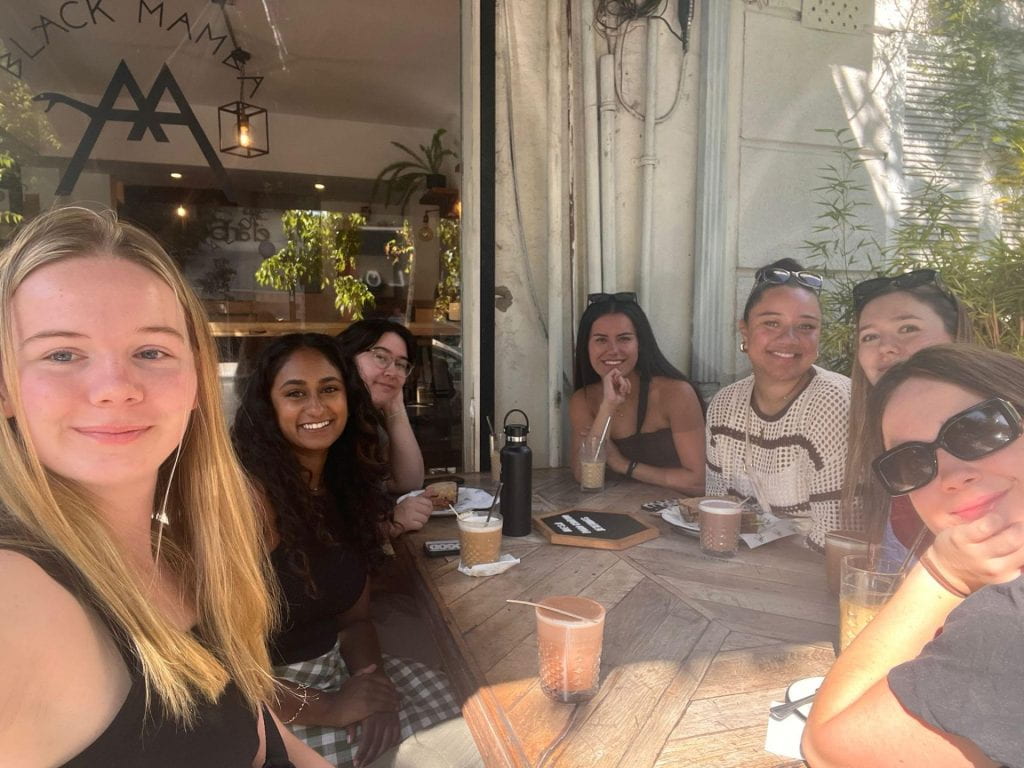
I’ve been thinking a lot about language recently. Whether it’s being taught innovative ways to string together Chilean slang words (no further details will be provided on this, for fear my blogging rights get revoked), trying to work out what someone is saying to me when I have an interaction with a local, or noting down the specific intention behind certain labels in class – language and the depth of roles and meaning it holds has been at the forefront of my mind.
People describe language as the central lens into a culture, and I’ve been really reflecting on what that means during these past two weeks. There is a whakatauakī which says ‘ko tōku reo tōku ohooho, ko tōku reo tōku māpihi maurea’ – my language is my awakening, my language is the window to my soul. As someone who has only ever known how to speak English, I always struggled to grasp how a language changes your worldview, or acts as an awakening. Yet, I vividly remember the first time I was struck by how such a phenomenon works when I learnt about the connection between certain words in te reo Māori (the Māori language), and the meanings they reflect in te ao Māori (a Māori worldview, the Māori world). Take the word whenua, for example. It can refer to both the placenta, and land. The practice of ‘whenua ki te whenua’ is the act of burying the placenta in the baby’s tūrangawaewae, the land from which they descend, to solidify the connection between Papatūānuku, the māmā, and the pēpi. Taken together, this all illuminates how land, as our source of life and sustenance, and the afterbirth, a source of sustenance during the baby’s development in the womb, are intimately tied together within te ao Māori; the language thus acts as a window into the way the world is understood.
In a Chilean context, my humble attempts to pick up some Spanish have further offered me a range of unexpected realisations regarding language and its centrality to everything. This is the first time I have seriously engaged with learning a different language on my own terms, and it has taught me a surprising amount. One of the most salient lessons has been recognising how much I take for granted being able to communicate with everyone I encounter at home. With this has come a newfound sense of appreciation for language learning, and how truly difficult it is to actually learn a language. This is particularly important for me, given that when I return home to Aotearoa, I will be starting my year of full immersion in te reo Māori at the University of Waikato. It helps to have this experience as a sort of stepping stone towards what it’s like to learn a language, because it’s sparked a sense of recognition within me that the path to comprehension and fluency is long, and difficult – and managing expectations is important.
Another realisation has been that although often wearisome, learning a language is incredibly rewarding. Midway through the first week here, a group of us went out for coffee in the morning and successfully ordered in Spanish for the first time – I still remember the jolt of excitement that went through me when I said my piece (“Quiero un café frío con vainilla, por favor”), and understood what the waitress was saying in response. The thing about learning Spanish in a primarily Spanish speaking country is that you kind of have no choice but to learn it – but as you do, your progress is instantly rewarded and reinforced. During another one of the first times we went out, the waiter was talking to us in Spanish and I was actually able to grasp some of what he was saying – a surreal experience, considering I was only really familiar with the bare basics at that point and I still don’t really know how I managed to understand what he was communicating. It’s hard to articulate, but the sense of connection I felt in that moment was so rewarding. Ultimately, I know that from this experience one of the biggest reflections I’ll be taking away is a renewed sense of appreciation for being able to speak English (given that it’s the most commonly spoken language in the world), and a newfound appreciation for language learning – something that will be much needed for the year of immersion that lies ahead once I return home!

